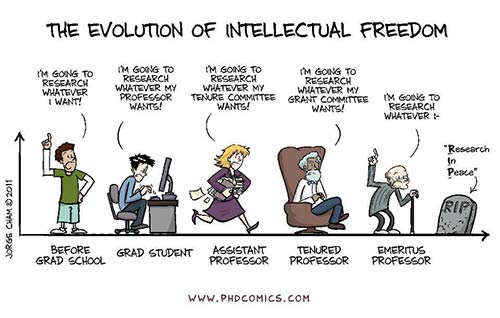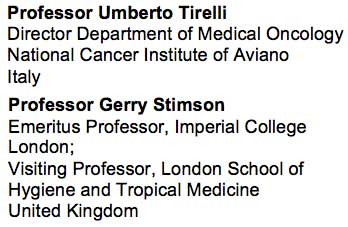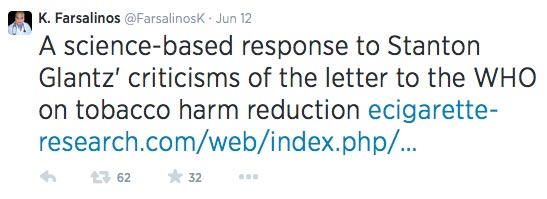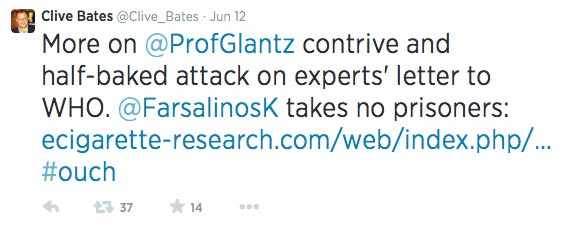With both pro and anti electronic cigarette groups applying pressure on the World Health Organisation (WHO) the tweets, Facebook posts and open letters demonstrate how prissy leading scientists can be.
1. Size is important (to some people)
Firstly, begin by ensuring you have the longest possible number of letters and credentials after your name. Stanton Glantz is a past master at this. He’s not the only one. When trying to ensure that what you are saying has credence everyone rolls out the letters. Check out Sharon, you go girl!
He’s not the only one. When trying to ensure that what you are saying has credence everyone rolls out the letters. Check out Sharon, you go girl!
Of course, some would say that there’s an over-compensation thing going on, like middle-aged men driving sports cars.
Compare the above anti-ecig campaigners with the scientists calling for the WHO to base decisions on good science. Notice how all of them have chosen to leave qualifications out of the equation and use the understated approach of just saying what they currently do rather than a potted life history, the middle-aged man driving a functional family hatchback approach.
2. Anti-social media
Flame wars are nothing new to the Internet. I remember having a heated exchange about the Thatcherite policies of the 80s where the third post had invoked Godwin’s Law and I’d been called a paedophile by the fifth: Attack the man, not the idea.
No one trolls the social media as well as a scientist – and the way they do it is to question either the intelligence or, worse, the abuse of the scientific process the other scientist has invoked.
“A science-based response” is a slap across Glantz’ face, implying his is anything but based on science.
Of course, it’s possible to be less subtle: Clive Bates goes for the all-out assault on Glantz’ ideas by calling them “half-baked”.
Now, any one who has watched The Big Bang Theory will appreciate, this is like calling Sheldon Cooper dim-witted. For those who like their string of credentials to be on public display nothing cuts deeper than the allegation that they can’t think properly.
3. Question what drives their science

Scientists are humans, they do a job and get paid…but by who? The ‘who’ is important as it dictates what they are expected to say. So when someone makes a statement or releases e cig research it would be a brave or stupid person to put burning bag of dog poo on his or her own doorstep.
4. Insult their intelligence again
By now, you ought to understand that people at the top of their profession are proud people. They have become adept at covering up their mistakes and blaming it on other people (Glantz blaming his “source” for telling him Clive Bates was in the Philippines).
Dr Farsalinos is an expert in many things but the one thing not on his curriculum vitae is his ability to use 180 characters to blast into other people’s lack of insight.
Just make sure you’re fast though, Glantz has a habit of being quick to delete his more inappropriate tweets – it’s probably because he’s too stupid to think before he acts.
See how easy it is!
Sources:
The letter to WHO from West and colleagues
https:https://twitter.com/ProfGlantz
https://twitter.com/Clive_Bates
https://twitter.com/FarsalinosK










